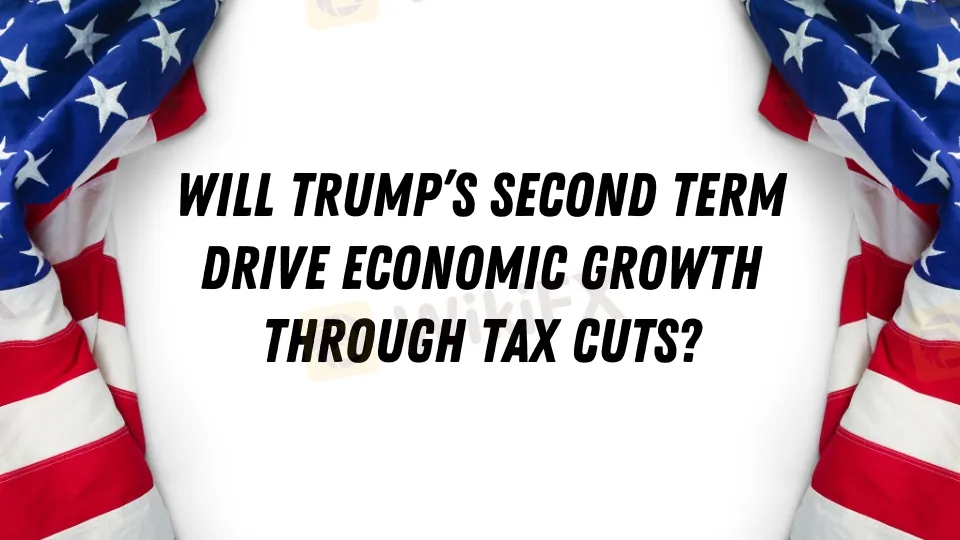简体中文
繁體中文
English
Pусский
日本語
ภาษาไทย
Tiếng Việt
Bahasa Indonesia
Español
हिन्दी
Filippiiniläinen
Français
Deutsch
Português
Türkçe
한국어
العربية
Will Trump’s Second Term Drive Economic Growth Through Tax Cuts?
Abstract:Donald Trump’s second term may bring economic boosts with plans for tax cuts, deregulation, and crypto policies, impacting banks and various sectors worldwide.

As Donald Trump embarks on his second term, anticipation grows around possible changes in tax policy, deregulation, and cryptocurrency, which could lead to significant economic shifts. Stefan Gratzer, J.P. Morgan Private Banks managing director and head of institutional wealth management in Switzerland, shared insights at a recent Kuwait conference, suggesting that the next two years could bring profound impacts across several sectors.
Gratzer highlighted Trump's unique approach toward cryptocurrency as a key differentiator. “This could be completely new, and nobody knows what this is going to mean,” he noted. The potential deregulation, especially favorable for large banks, aligns with Trumps pro-growth promises, which previously fueled economic gains. Gratzer emphasized, “A lot of talk about deregulation is obviously beneficial for banks like us at the moment, but again, we need to see.”

Republican control of the U.S. Senate, along with a likely majority in the House, positions Trump to implement his agenda, particularly around tax cuts. Gratzer explained the potential upside for shareholders, noting, “If the tax is lower, your share price is higher. I think that‘s a bit what we’ve seen in the last week.” He added that this favorable alignment in Congress could ease policy changes, though challenges could emerge after the 2026 midterms.
Tech, Energy, and AI: A Focus in the Middle East
Aside from U.S. policy, J.P. Morgan sees growth opportunities in technology sectors, notably in the Middle East and North Africa. Speaking at the MoneyTech event, Gratzer noted rising interest in tech pipelines, particularly in artificial intelligence, energy transitions, and luxury goods. Electric vehicles and sustainable transport are also gaining traction, showing the region's investment in modern infrastructure.
Gratzer also identified the healthcare, defense, and education sectors as promising areas for increased investment. As the global economy adapts to new trends, these sectors offer unique opportunities for growth and innovation, meeting evolving demands in the region.
Final Thoughts
The upcoming two years under Trumps second term are likely to be transformative, especially if his tax and deregulation policies materialize. Financial institutions and investors are cautiously optimistic, anticipating growth opportunities that could reshape markets. However, the true extent of these impacts will depend on legislative support and the adaptability of businesses worldwide. As technology and energy continue to evolve, the Middle East may emerge as a hub for futuristic investments, further expanding its influence on the global stage.

Disclaimer:
The views in this article only represent the author's personal views, and do not constitute investment advice on this platform. This platform does not guarantee the accuracy, completeness and timeliness of the information in the article, and will not be liable for any loss caused by the use of or reliance on the information in the article.
Read more

MultiBank Group Wins Big at Traders Fair Hong Kong 2024
Discover how MultiBank Group, a global leader in financial derivatives, secured three prestigious awards at Traders Fair Hong Kong 2024, highlighting its innovative trading solutions and industry excellence.

CySEC Settles Compliance Case with Fxview Operator Charlgate Ltd
Discover how CySEC resolved compliance issues with Charlgate Ltd, the operator of Fxview, through a €50,000 settlement. Explore the investigation, regulatory measures, and CySEC's new website designed for improved accessibility and transparency.

TradingView Launches Liquidity Analysis Tool DEX Screener
Discover TradingView's DEX Screener, a powerful tool for analyzing decentralized exchange trading pairs. Access metrics like liquidity, trading volume, and FDV to make smarter, data-driven trading decisions.

Doo Financial Expands Reach with Indonesian Regulatory Licenses
PT. Doo Financial Futures, a subsidiary of the global financial services brand Doo Group, has secured regulatory approval from Indonesia’s Badan Pengawas Perdagangan Berjangka Komoditi (BAPPEBTI).
WikiFX Broker
Latest News
Geopolitical Events: What They Are & Their Impact?
Volkswagen agrees deal to avoid Germany plant closures
Top 10 Trading Indicators Every Forex Trader Should Know
TradingView Launches Liquidity Analysis Tool DEX Screener
MultiBank Group Wins Big at Traders Fair Hong Kong 2024
WikiEXPO Global Expert Interview: Simone Martin—— Exploring Financial Regulation Change
'Young investors make investment decisions impulsively to keep up with current trends' FCA Reveals
Why Do You Feel Scared During Trade Execution?
CySEC Settles Compliance Case with Fxview Operator Charlgate Ltd
Malaysian Influencer Detained in Taiwan Over Alleged Role in Fraud Scheme
Currency Calculator


